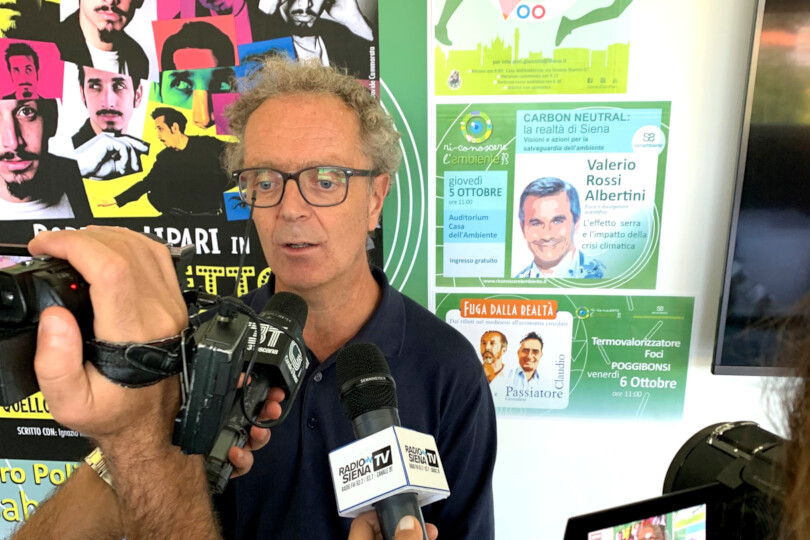by Maria Luisa Anini

March 21 – Dear Director,
Professor Ivan Kavici’s latest book “The Incomparable Science. Medicine, Doctors and Patients” is an expression of a need that has become more urgent among physicians and health professionals than the undeniable but unspoken crisis of medicine, which everyone realizes even if it is accepted in public only from before the bravest.
In this must-read and should become a textbook for students of medical school and beyond, the causes of the crisis in medicine and thus in our profession are revealed with the usual competence and passion of an ‘author’. .
But where does this crisis come from? Can it be resolved? And if so, how?
Professor Kavici, who analyzes the causes, offers challenging but exciting solutions and sees in the doctor, in a different way of being a doctor, the driving force for change and rethinking of medicine more in keeping with the times and what citizens expect from us.
The conceptual framework of medicine is examined in three units of absolute authenticity: the paradigm, doctrine, and system that has existed since dawn when it was “told by myth with the same rationality with which a scientific event could have been told” in fact with myth our ancestors scientifically explained the birth of the universe, the death of man, and reality physical and metaphysical.
All to understand medicine to make it more understandable and usable.
The paradigm focuses on illness closely related to a sense of justice or what is right to do, what ought to be done or what is appropriate to do, laying the foundations of morality with ‘prior’ morality and linking it to what is beneficial for the right to treatment.
While the model deals with normative statements and the postulates inherent in disease, the doctrine, which follows directly from it, turns the statements into rules to guide medicine for the discipline that deals with (clinical) processes and practices where disease, hitherto, is always the object of study, treatment, and diagnosis.
Over the millennia, the system has remained stable with the necessary variables typical of the trends or trends of the centuries, especially from the Renaissance to the present day, but over time the paradigm has eclipsed and the system of medicine has been reduced to two units: doctrine and order which thus lost the guidance of the first paradigm by obeying only the law of science .
“Today the old paradigm has collapsed, but without change, the positivist Hippocratic doctrine functions as if it were a paradigm but encounters strong problems of social consensus, and discipline at the level of practice betrays difficulties in its relation to the sick.”
We, who take care of the sick every day, act according to these three implants which are no longer compatible with what the citizens demand of us or with the drastic changes in the social context in which we live, but re-implanting this implant is quite a challenge and perhaps for this reason I have not had any Someone the courage and strength to deal with, even if the discomfort of our profession is suffering so severe that sometimes we are led to attribute our difficulties to marginal and nonessential causes (the formalization of health care), lack of funds, stressful shifts at work, excessive bureaucracy at work) Without realizing that it would be sufficient to renew the contract between medicine and society by translating new hypotheses into new presuppositions and thus into new rules and finally into new practices with new deontology.
Indeed, in a new paradigm that replaces disease with patients (this medicine treats patients and not just diseases), or that nature is not universal because it has its own characteristics, or that disease is not human fault, will have major implications for the definition of dogma and discipline!
In fact, medicine is complexity and reason (for the Hippocratic physician) comes before rationality (from EBM), and philosophy supports science, “Experience remains the basis of knowledge but the physician must necessarily be a good intellectual.”
If the patient in the model replaces the disease, who will have the role of studying and treating the patient? A series of prepackaged a priori? Or from mathematical algorithms and probability? Who will have the possibility to consider also the uniqueness of the person suffering which will never be included in any standard procedure except the doctor? Here the physician is introduced with relevant practices as a fourth unit in the new conceptual framework of medicine and this fills us with pride as he finally realizes the potential of the medical profession for which we feel punished by charging us with anger or resignation, even if so many of us, bravely, have been endowed with a forward and proactive spirit .
But if we are not able to face the crisis, without postponing it or delegating it to posterity, and thus reform the system of medicine, then it is clear that nothing tragic can happen or happen to us if not for the increasingly ruthless cultural impoverishment and handing over of others to others. Direct everything towards dangerous drifts that we will regret.
Personally, I believe that the society in which we live no longer intends to be patriarchal but wants to choose how to deal with itself and we must have the knowledge, experience, sensitivity and appropriate training for a suitable choice as well as the ability to think. Independently.
Then the incomparable science, medicine, which can only be defined as such because it pertains to a person whose history, context with his uniqueness and who has no other peers, will be accomplished by an educated physician. The method but has the freedom to interpret the method, which has logical and discretionary skills (appreciation does not correspond to abuse).
For the incomparable physician, the patient is the way to go, not the way, which will “make him swerve as far as is necessary and go straight as far as he ought to go straight” but will be legally defined in an unparalleled manner, trained in unparalleled place He has unparalleled wages.
I hope that this book, full of confidence in our work and which makes us proud of how it is understood, will be known by many colleagues because what it proposes can be a powerful direction for our worthy future and above all for the future of health and this also from the foundation of the profession is as angry as it is resigned, the energy can be shown New to a historic change of what we believe in.
Maria Luisa Anini
Respiratory doctor
March 21, 2022
© All Rights Reserved
Other articles in Letters to the Editor







“Infuriatingly humble social media buff. Twitter advocate. Writer. Internet nerd.”

